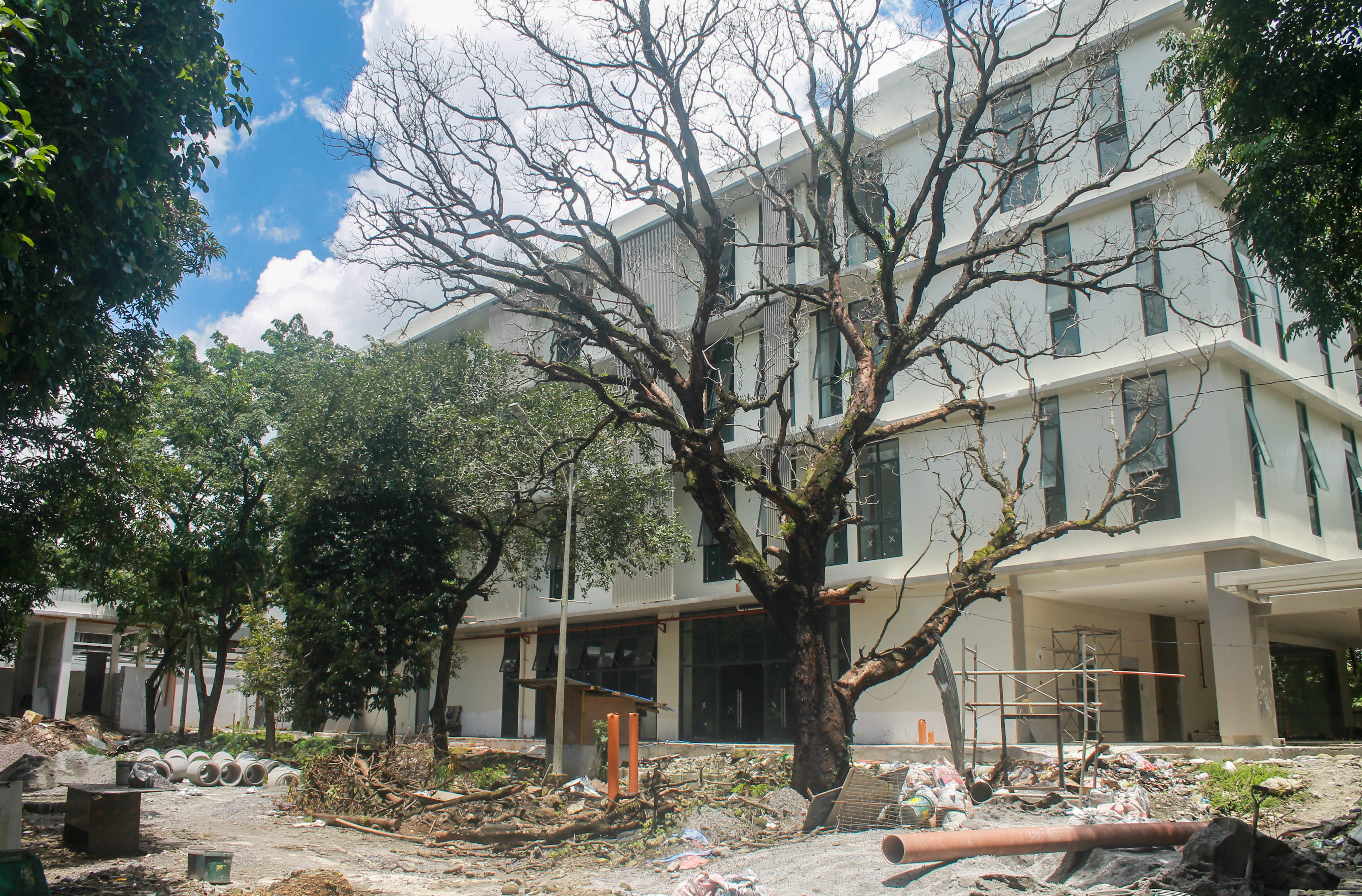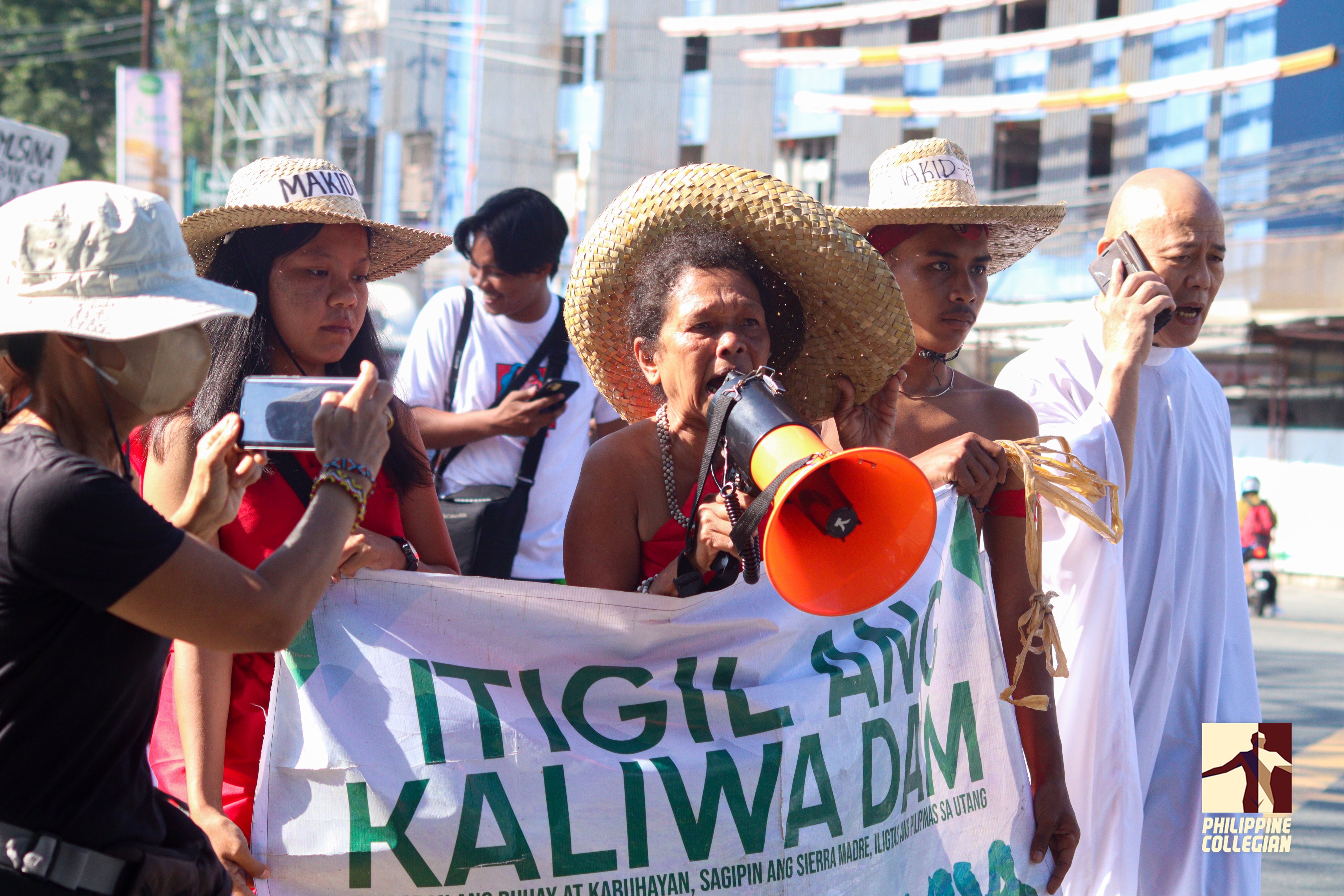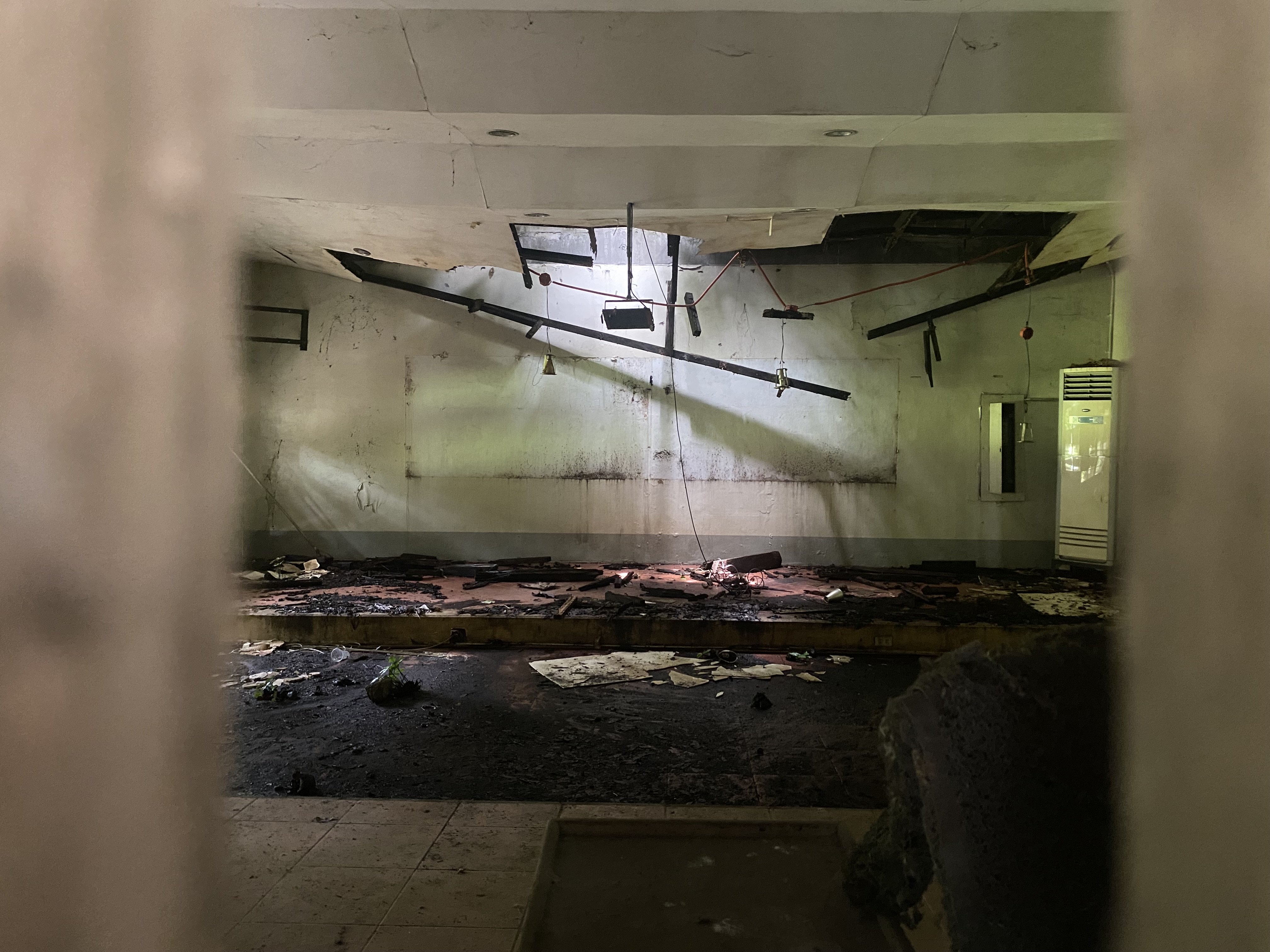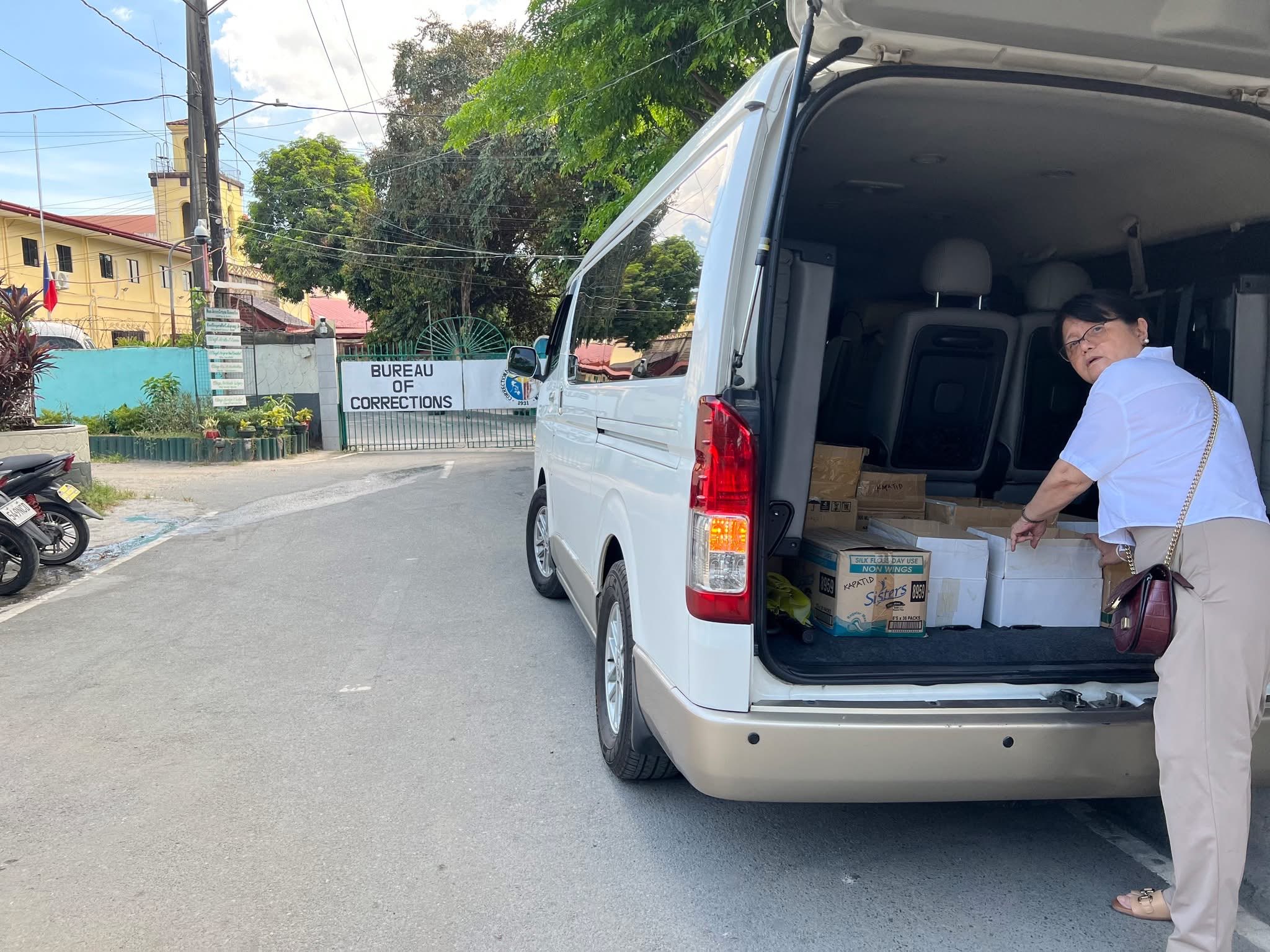The Samahang Manininda sa UP Campus (SMUPC) called for revisions in the university guidelines on vending activities to streamline processes for the maninindas to operate and sell anywhere on campus.
The group’s demands came after displacement threatened at least seven maninindas near the about-to-be-completed Dilimall, located at the site of the old shopping center.
“Ang usapin ng commercialization ay matagal nang isyu. Para sa case ng mga manininda, malaking epekto sa amin [ang] pagpasok ng commercialization kagaya ng nangyari sa Gyud Food,” SMUPC President Narry Hernandez said.
Dilimall is eyed to be the new shopping center, as the previous center was razed down in a fire in March 2018. Like the old shopping center, Dilimall will offer an array of goods and services to the community.
Hernandez, however, believed that the prices of services in Dilimall would be similar to the Gyud Food Hub, which SMUPC earlier blasted as anti-poor.
“Para sa amin, hindi katanggap-tanggap ang mataas na renta ta’s binabawi naman yung mark-up ng price sa mga estudyante. Kaya nga kami tumututol sa aming hanay [na] pumasok sa ganyang stall para makapag-alok kami ng mas murang alternatibo sa mga estudyante,” Hernandez said.
Much like in Gyud Food, Dilimall’s stalls would be managed by third-party concessionaires. SMUPC feared that the cost of vending spaces would be exorbitant, similar to Gyud Food Hub where rent ranges from P15,000 to P25,000.
“Hindi talaga maiiwasan ang taas ng kanilang renta, kaya nga kami tumututol sa aming hanay sa pumasok sa ganyang stall kasi yung mag-bu-burden sa taas ng presyo ay mga estudyante,” Hernandez said.
The hefty rent price is not SMUPC's sole concern. Hernandez said they were not given opportunities to sell in Gyud Food despite some SMUPC members having the capacity to pay rent.
The SMUPC called for the revision of the university guidelines on vending activities as the group struggled to avail vending permits under the existing policies of the Office of the Vice Chancellor for Planning and Development (OVCPD). SMUPC’s proposed revision will allow maninindas to sell in areas where important events occur, such as the annual Lantern Parade and UP College Admission Test.
Hernandez said that despite their adherence to the university processes to acquire vending permits, they were still rejected because the university feared they would worsen traffic congestion on the campus.
This is not the only instance when the university administration neglected the concerns of SMUPC. In 2020, then UP President Concepcion granted the SMUPC space near the University Library after threats of displacement surfaced due to a new faculty construction beside the Main Library. However, the Diliman administration has yet to give formal approval to allow SMUPC in the designated place until now.
The OVCPD, in its letter to the Collegian, said that the usage of fixed assets and buildings of UP rests upon the decision of the UP Board of Regents, in accordance with Memorandum 17-03.
OVCPD explained that all requests of any seller on any constituent universities for the deposition of fixed assets must be approved by the UP president, as endorsed by the chancellor.
Still, SMUPC raised concerns about a possible snub of their concerns from the UP administration as they were previously deprived of spaces to sell near the Gyud Food Hub and UP Library.
"May posibilidad na ang administrasyon ay tatalikuran kami kasi nagawa rin nila sa Gyud Food Hub," Hernandez said.
Hernandez hoped that Chancellor Edgardo Carlo Vistan would heed their calls for adequate spaces and inclusive treatment for them to sell on university grounds.
“Dapat i-prioritize ng UP administration na magbigay espasyo [sa] mga manininda sa mga bagong establishments kasi dapat ma-recognize ng unibersidad na ang mga UP manininda ay bahagi na ng kasaysayan at kultura ng unibersidad," Hernandez said. ●







